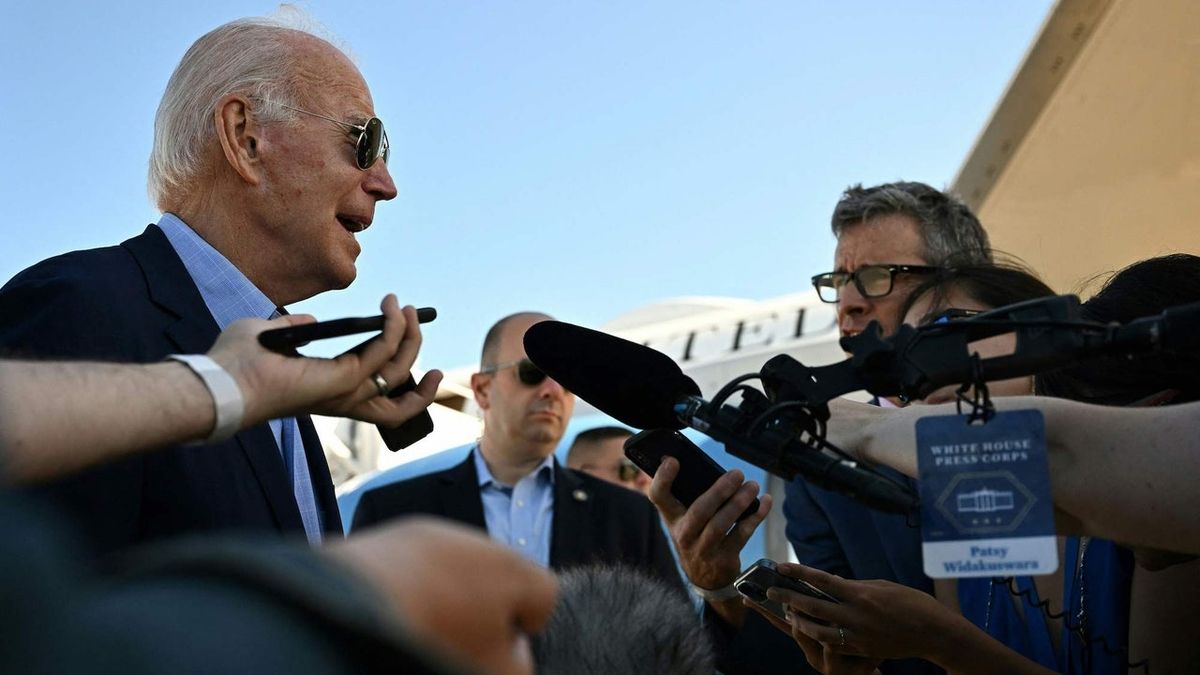



Despite concerns about President Joe Biden's declining approval ratings and the disconnect between his agenda and his popularity, there are additional challenges that his reelection campaign must address. US Representative James Clyburn, a key figure in Biden's 2020 campaign, warns that Biden cannot beat the MAGA meme machine online. Trump's supporters have created a powerful online presence with memes and social media noise that overwhelms news about Biden's accomplishments. This makes it difficult for Democrats to effectively communicate their message. Clyburn calls for a strong ground game with voices and validators to combat disinformation and reach voters. He points to the successful ground game of former Philadelphia Mayor James Kenney as an example. Clyburn's endorsement played a crucial role in reviving Biden's campaign in 2020, and he urges Biden to ramp up his campaign efforts and take a more offensive stance against Trump [fbec4665].
In an effort to engage younger voters and connect with supporters on social media, President Joe Biden's social media team shared a 'Dark Brandon' meme. This meme emerged from the phrase 'Let's go Brandon,' a coded insult aimed at the president. Democrats have transformed it into a symbol of defiance and humor. The 'Dark Brandon' meme demonstrates the power of humor and pop culture in political discourse. It showcases the Biden campaign's strategy of leveraging humor and pop culture references to engage with supporters on social media. Additionally, the potential endorsement of Biden by Taylor Swift highlights the influence of celebrity endorsements in politics [126698a3].
Will Stancil, an otherwise obscure University of Minnesota scholar of racial segregation, has become one of the most well-known online pugilists in American politics by posting frequently on Twitter. Stancil believes that controlling the media narrative is key to controlling politics. He has tested this theory by questioning the media's portrayal of the American economy and has gained influence by challenging popular narratives. Stancil's relentless posting has made him a legendary figure on Twitter, attracting both supporters and critics. He has faced controversy and bullying but continues to stand his ground. Stancil's work on racial segregation has influenced his thinking about politics in a polarized society. He believes that narratives and emotional triggers play a significant role in shaping voter behavior and that understanding how narratives can change politics is crucial. Stancil sees mythmaking as a powerful tool used by both conservatives and progressives to shape public opinion. He argues that Democrats need to better understand voters' decision-making and the role of emotions in politics. Stancil has recently criticized the national media's focus on President Joe Biden's senility while downplaying Donald Trump's behavior. Despite facing personal and professional challenges, Stancil remains committed to his online political activism and his work on racial segregation at the University of Minnesota [ee023df5].
Will Stancil, a Minnesota policy wonk and Twitter power user with over 80,000 followers, has recently announced his candidacy for the Minnesota State House of Representatives. Stancil has long campaigned for effective metropolitan regional governance, desegregation of public schools, and affordable housing. He gained attention on Twitter for his persistent and sometimes controversial posts about the U.S. economy under Joe Biden. Stancil's online behavior has garnered both praise and criticism, with some seeing him as an influential figure in shaping political discourse. He believes that Twitter is a platform where important people gather and where he can have an impact. Stancil's candidacy will test whether his online persona and unfiltered hot takes can translate into real political power. He is running in a competitive Democratic primary scheduled for August in House District 61A in Minneapolis. Stancil's policy platform focuses on public schools, revitalizing street-level businesses, reforming public services, and protecting the civil rights of minority communities. He sees media as an insular, elite space where consequential ideas are discussed and where he can break through. Stancil has built relationships with prominent figures in politics and journalism through Twitter and believes that his influence extends beyond the platform. However, his online persona has also attracted criticism, with some accusing him of arrogance and manipulation. Stancil's candidacy will determine whether born posters like him can succeed in gaining political power [982ab5e8].